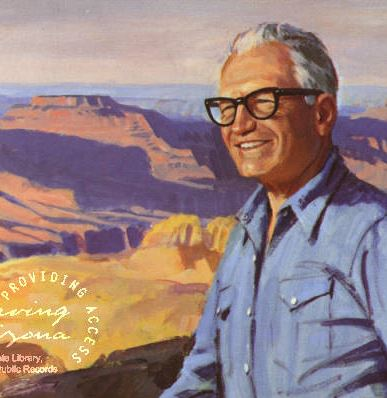I would remind you that extremism in the defense of liberty is no vice! And let me remind you also that moderation in the pursuit of justice is no virtue!
Barry Goldwater, a pivotal figure in American politics, played a multifaceted role in civil rights during a transformative era. While his legacy is often overshadowed by his vote against the Civil Rights Act of 1964, a closer examination reveals a nuanced and complex journey marked by achievements, advocacy, and an unwavering commitment to individual liberties.
The Civil Rights Act of 1964: A Complex Decision
Goldwater's vote against the Civil Rights Act of 1964 is a defining moment that requires contextualization. His opposition stemmed from a belief in states' rights and concerns about potential federal overreach. Goldwater argued that the government should not dictate private business practices, reflecting a libertarian philosophy that prioritized limited government intervention. Though controversial, this stance was rooted in his broader political ideology rather than opposition to civil rights per se.
NAACP Membership and Desegregation Efforts
Contrary to perceptions, Goldwater was a member of the National Association for the Advancement of Colored People (NAACP) during the 1950s. His commitment to civil rights was evident in his advocacy for desegregation in the Phoenix Public Schools and his instrumental role in desegregating the Arizona National Guard, showcasing a dedication to dismantling racial barriers in his home state.
Planned Parenthood and Women's Rights
Goldwater's relationship with Planned Parenthood reveals a nuanced perspective on reproductive rights. While he supported family planning, he opposed federal funding for abortion. His stance reflects a commitment to limited government involvement in personal matters while recognizing the importance of access to reproductive health services. He and his wife Peggy helped to found the Arizona branch of Planned Parenthood.
Views on Gay Rights and Immigration
In the realm of civil rights, Goldwater was a trailblazer regarding LGBTQ rights. Long before it gained widespread acceptance, he argued against discrimination based on sexual orientation, emphasizing individual freedoms. In an interview Goldwater said, "You don't have to agree with it, but they have a constitutional right to be gay."
Similarly, his views on immigration favored a pragmatic approach that balanced national security concerns with the recognition of the economic and cultural contributions of immigrants. In 1962 Goldwater wrote of his vision that, "...the Mexican border will become as the Canadian border, a free one, with the formalities and red tape of ingress and egress cut to a minimum so that the residents of both countries can travel back and forth across the line as if it were not there."
Conclusion: A Legacy of Nuance and Advocacy
Barry Goldwater's civil rights legacy is one of complexity, encompassing both achievements and controversies. His contributions to desegregation, membership in the NAACP, and advocacy for LGBTQ rights underscore a commitment to individual liberties. While his vote against the Civil Rights Act remains a point of contention, it is crucial to understand his broader perspective on limited government intervention. Goldwater's legacy encourages a nuanced examination of the intersection between individual freedoms and civil rights in the complex landscape of American politics.




No comments:
Post a Comment